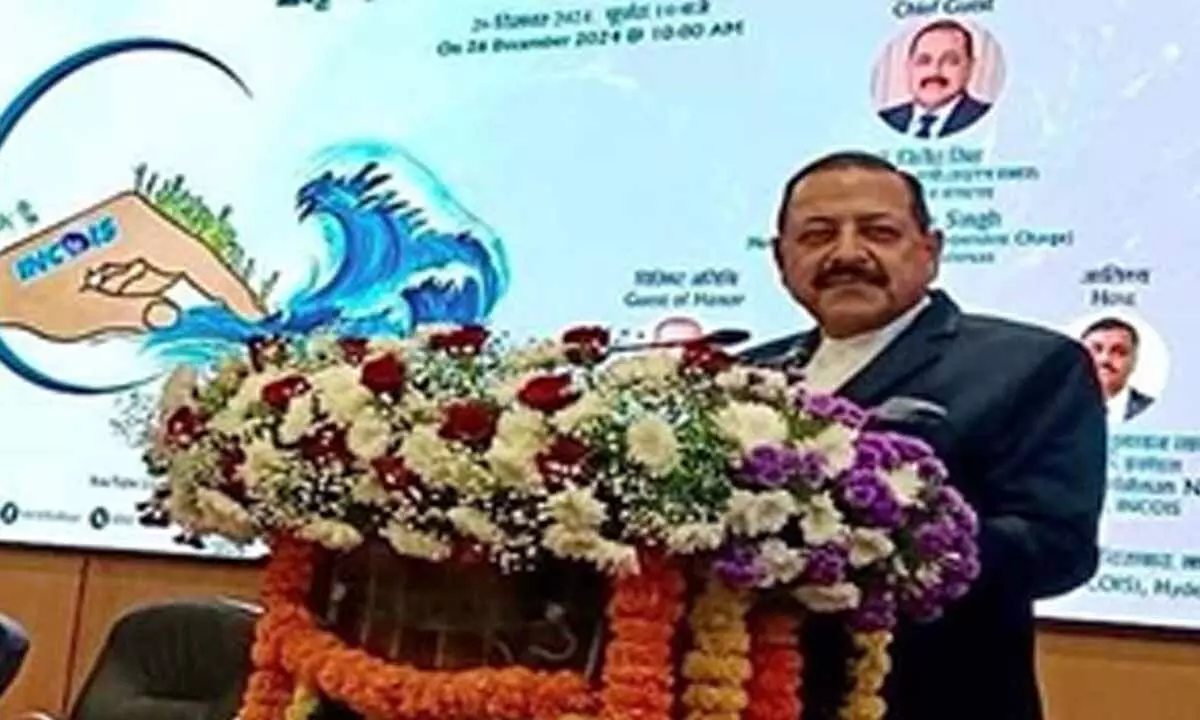India a global leader in disaster warning systems: Jitendra Singh
Share :

India today has emerged as a global leader in "disaster warning" and is catering to other nations as well across the world, said Union Minister of State (Independent Charge) for Science and Technology Dr. Jitendra Singh on Thursday.
New Delhi: India today has emerged as a global leader in "disaster warning" and is catering to other nations as well across the world, said Union Minister of State (Independent Charge) for Science and Technology Dr. Jitendra Singh on Thursday.
He said this while commemorating the 20th anniversary of the 2004 Indian Ocean Tsunami at INCOIS (Indian National Centre for Ocean Information Services).
“India’s emergence as a global leader in providing world-class disaster warning systems, underscores the pivotal role of scientific advancements in fostering safety and sustainability,” said the minister.
The Minister recalled that the INCOIS was conceptualised following the tragic Tsunami of 2004, which claimed over 230,000 lives worldwide, including 10,749 in India.
He noted that after 2014, the INCOIS made rapid strides to be recognised as the world's most state-of-the-art institute of its kind.
India’s Tsunami Early Warning System, lauded internationally, was showcased as a cornerstone of the nation’s disaster preparedness.
He noted that INCOIS played an active role in the Ocean Decade Tsunami Programme -- aiming to achieve 100 per cent tsunami-ready communities globally by 2030.
Singh states that these initiatives can strengthen global partnerships as well as “pave the way for resilient coastal communities worldwide”.
Further, to bolster community resilience across vulnerable regions, collaborations are ongoing with UNESCO and the Tsunami Ready Initiative, the Minister informed.
In addition to the tsunami, the Minister underscored the need to integrate warnings with storm surges and high waves into a comprehensive multi-hazard early warning system.
“This forward-looking approach will ensure that we continue to safeguard lives and livelihoods against a wide spectrum of potential disasters,” he added.
Singh also underlined the growing significance of oceanic exploration in India’s journey toward becoming "Viksit Bharat".
With a 7,500-kilometre coastline and abundant marine resources, he advocated for their sustainable exploration and conservation.
“Our deep-sea mission and initiatives like BioE3 [Biotechnology for Environment, Employment, and Economy] are creating an ecosystem that will not only enhance biodiversity but also contribute to national prosperity,” the Minister said.
“We are planning to deploy an Indian in the deep sea and another in space, possibly by 2026, marking a historic milestone,” he added.







